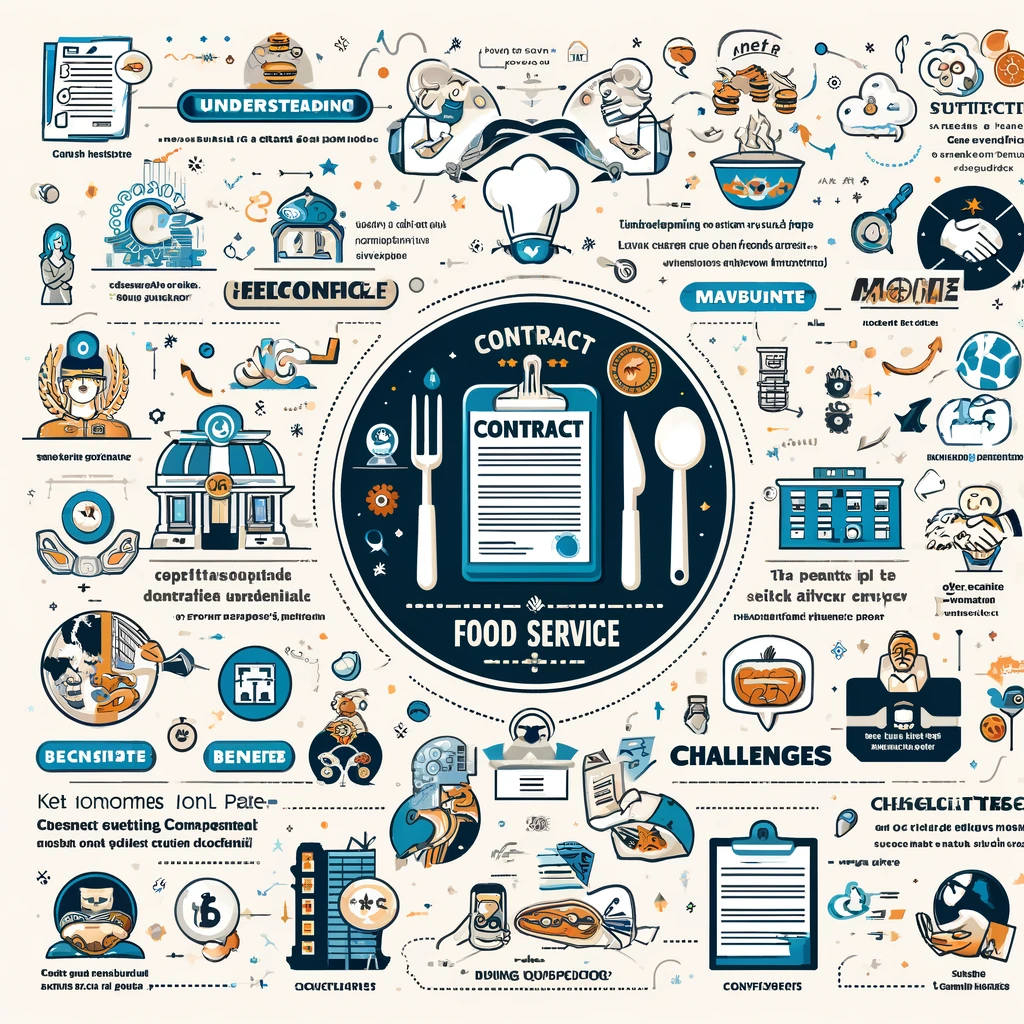Exploring Contract Food Service: A Comprehensive Guide for 2023
In the dynamic world of food service management, contract food service stands out as a pivotal solution for businesses, educational institutions, healthcare facilities, and more. This comprehensive guide delves into the essence of contract food service, highlighting its benefits, challenges, and key considerations for those looking to venture into or optimize their contract food service operations in 2023.

Understanding Contract Food Service
Contract food service refers to the outsourcing of food operations to a third-party company specialized in managing food services for various types of establishments. This model offers numerous benefits, including operational efficiency, cost savings, and enhanced food quality and variety.
The Significance of Contract Food Service
Contract food service plays a crucial role in ensuring the smooth operation of cafeterias, dining halls, and other food service venues, especially in sectors like education, healthcare, and corporate settings. By leveraging the expertise of specialized providers, organizations can offer their employees, students, or patients better food experiences without the direct challenges of managing these services in-house.
Key Components of a Contract Food Service Agreement
A successful contract food service agreement lays the foundation for a beneficial partnership between the service provider and the client. Key components typically include:
Service Scope: Clearly defined services to be provided, including meal planning, sourcing, preparation, and compliance with dietary and health standards.
Financial Terms: Detailed cost structures, payment schedules, and any performance-based incentives or penalties.
Quality and Performance Standards: Expectations for food quality, customer service, and operational efficiency, often with benchmarks for regular evaluation.
Regulatory Compliance: Agreements must ensure adherence to all relevant health, safety, and employment regulations.
For an understanding of food service management and legal considerations, educational resources can be found through Cornell University's School of Hotel Administration which offers insights into hospitality and service management best practices.
Benefits of Contract Food Service
Contract food service offers several advantages to institutions and companies, including but not limited to:
Cost Efficiency: Potential for reduced operational costs through the provider’s economies of scale and expertise.
Quality Improvement: Access to culinary expertise and resources that can elevate the food service quality.
Focus on Core Activities: Allows the organization to concentrate on its primary objectives while outsourcing food service logistics to experts.
Selecting the Right Contract Food Service Provider
Choosing the right provider is critical to achieving the desired outcomes of contract food service. Factors to consider include:
Experience and Reputation: Proven track record in managing services for similar institutions or companies.
Customization and Flexibility: Ability to tailor services to meet specific needs and adapt to changing requirements.
Sustainability Practices: Commitment to sustainability and ethical sourcing in food procurement and operations.
Overcoming Challenges in Contract Food Service
While contract food service offers numerous benefits, there are challenges to navigate, such as:
Aligning Expectations: Ensuring the service provider fully understands and aligns with the client’s vision and expectations.
Communication: Maintaining open, effective communication channels between all stakeholders.
Contract Management: Proactively managing the contract to address issues and adapt to changes in needs or circumstances.

Create & Review Your Contracts 10x Quality and Ease
Lawyer-level AI handles all your contract needs, with real lawyers providing safeguarding support

Conclusion
Contract food service represents a strategic solution for organizations seeking to offer high-quality dining experiences without the direct complexities of food service management. By understanding the essentials of contract food service agreements, carefully selecting providers, and effectively managing the partnership, organizations can enhance their food service offerings, satisfy their constituents, and focus more fully on their core missions.
To stay informed about the latest trends and regulations in food service management, consider consulting resources from the U.S. Food and Drug Administration and industry-specific guidance from the National Restaurant Association.

